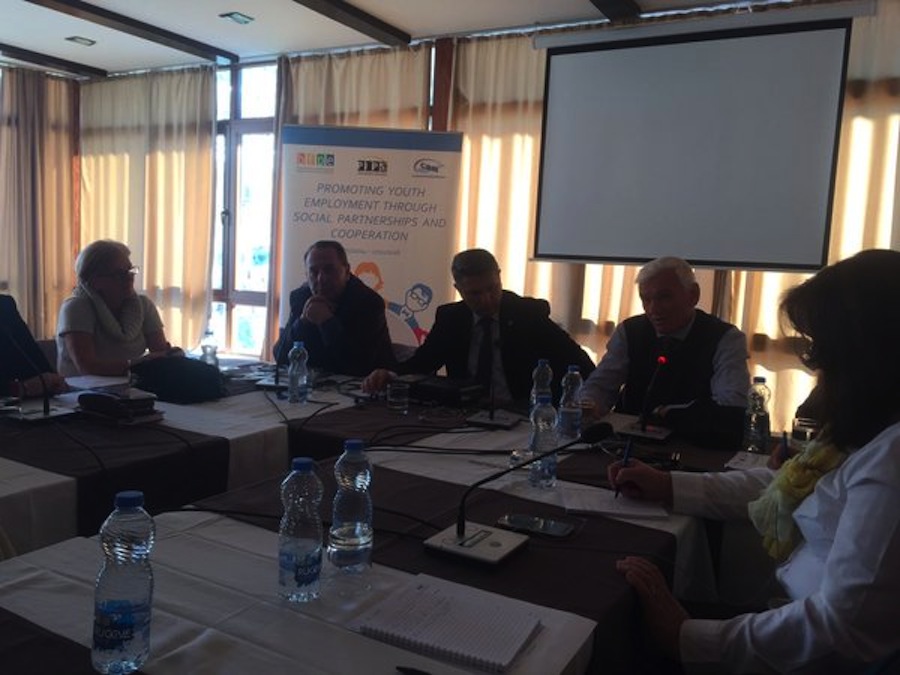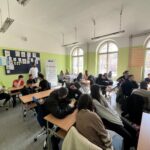
Program description
Local governments, professional groups and CSOs from 6 municipalities tackle the issue of youth (u)nemployment
Events in this program
Yearly, BFPE realizes more than fifty various events: conferences, round tables, panel discussions, consultancy, workshops and simulations.
Analysis and Publications
All our analysis in a single place: analysis; policy proposals; analytical reports from our events.
Program description
The project relies on the results of previous EU project implemented by BFPE and Kosovo Foundation for Open Society (KFOS) Local Networking for Sustainable Development, the first initiative where local self-government representatives from Kosovo and Serbia met and worked together on questions of sustainable development.
Learning from this experience and following participant feedback, we decided to initiate a project that would tackle another crucial challenge shared by both societies – a dramatic youth unemployment rate.

A detail from the study visit to Prizren, 4 Dec 2015. Photo: BFPE
In Serbia almost 50% among those aged 15-24 are unemployed, while in Kosovo this rate goes as high as 60%. Apart from the long-lasting effects of the global economic crisis and the pre-existing structural weaknesses in education and the labour market, this unemployment rate can also be attributed to a serious lack of coordination in the employment policy cycle as a key multi-sector policy for economic growth, welfare and social cohesion.
Some of the main challenges facing youth in Serbia and Kosovo are:
- lack of competences required in the labour market due to poor quality of education and training in relation to labour market needs,
- lower key competences in comparison to EU peers after primary and secondary schooling,
- lack of access to capital (financial, physical or social),
- employer discrimination and
- inadequate job matching.
In addition, while both countries face significant brain drain to more developed parts of Europe and the world, local level mobility of youth is relatively low and cross-border mobility encumbered by political barriers.
Specifically, the action will familiarise key stakeholders in youth employment in Serbia and Kosovo with their peers across the border and initiate platforms for exchange of ideas and best practices: through engaging the same group of 36 core participants in an extensive process of mutual learning, practical policy discussions and joint activities toward the relevant broader public, the action will create ample space for the participants to build professional ties, develop an understanding of joint challenges and interests, and initiate further sectoral or cross-sectoral collaborations across borders.
Second, activities aim to increase the knowledge and capacities of local stakeholders for tackling youth unemployment in innovative ways and through participatory processes: two capacity building trainings will generate new knowledge and ideas concerning youth employment policy on the local level, as well as empower individual stakeholder groups to design, monitor and evaluate targeted measures for youth employment.
Finally, the action intends to initiate social dialogue on youth employment policies at local level and raise awareness in local communities and among national policymakers: a series of four practical community visits followed by a targeted awareness building campaigns will involve field visits, policy debates, and public discussions on new and innovative solutions in tackling youth unemployment, stressing the importance of information sharing among institutions for developing new policies and impact evaluation.
The key stakeholders include community based and youth CSOs, local governments (local youth offices, local councils for economic development, local employment councils), public employment services, education providers, business and business associations, professional groups and trade unions.

This project was supported by the European Union.








